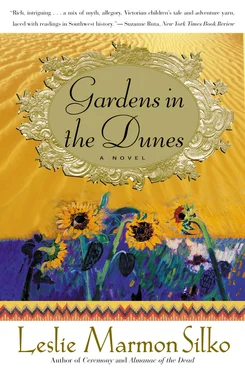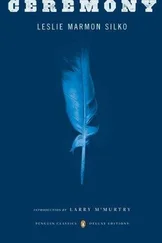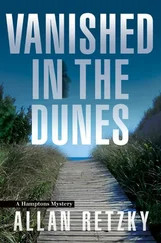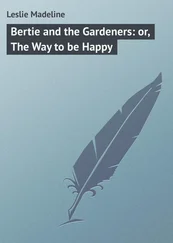Edward examined the carved gemstones again. The bright orange carnelian depicting the goddess Minerva seated with a serpent was even more impressive, and Edward thought he could make a decent profit if he sold it in the United States. He particularly liked the vibrant bloodstone carved with the left profile of Jupiter seated with his mantle draped over his loins, his scepter in his left hand and an eagle on his outstretched right hand. The device of Jupiter holding an eagle was not common on gems, and Edward wanted very much to buy the gemstone.
The major was reluctant to see the pieces leave England, but the circumstances left him little choice; to continue the work additional funds must be obtained. Edward nodded; he understood. He examined a figure of Fortuna, carved into brown agate banded in white; the figure of the goddess held a poppy head in one hand and what appeared to be an ear of corn in the other hand, though it must have been another plant, since corn was a New World plant.
♦ ♦ ♦
Aunt Bronwyn took Indigo to find some refreshment in the hotel dining room while Edward negotiated a price for the carvings and one or two lead curse tablets.
After they returned to the house Edward brought out the lead curse tablets the major sold him. Edward was not sure how marketable the tablets would be — they were dark and discolored, their edges badly broken. Ugly and poisonous, lead was the perfect vehicle for the curses crudely scratched on their surfaces before they were tossed in the sacred spring. The old Celts and the Romans believed sacred wells and sacred springs had the power to expose and punish thieves and cheaters. All that was necessary was to write out the person’s name.
Edward was in good humor as he read the inscribed curse: “To the goddess Sulis. Whether slave or free, whoever he shall be, you are not to permit him eyes or health. He shall be blind and childless so long as he shall live unless he returns”—the next word is illegible—“to the temple.” Edward speculated on the illegible word while the coachman and his wife brought out the baskets of food for the picnic. Edward was pleased with his purchases from the major; the stop in Bath was more rewarding than he anticipated. He considered pleading a headache to excuse himself from the picnic so he could spend time with his new acquisitions, but the old woman promised circles of ancient stones on hilltops he must see.
Someone must have beaten the old bluestone with a hazel stick while they were at the excavation because by the time they washed up and had a light lunch (Aunt Bronwyn believed no one should go on a picnic hungry), the clear sky and sun gave way to dark blue storm clouds and wind-driven rain. The sky darkened, so hall lamps were lit by two o’clock. As the afternoon wore on, the wind blew harder and the creak and groan of the roof timbers could be heard, along with other noises in the wind — clatters and bangs of loose shutters. The old cloister was in need of repairs.
Edward excused himself and went upstairs; despite the fury of the storm, he was relieved to have the afternoon free to examine the Roman artifacts he purchased and to prepare his watercolor box for Corsica. He sharpened the knife he planned to use to make the twig cuttings and packed it in the watercolor box in a compartment under the brushes. He mixed watercolor washes and practiced pen-and-ink drawings of landscape scenes he copied from a guidebook. The Corsican farmers undoubtedly were accustomed to finding foreign tourists with easels and paint in their fields and orchards; after his undergraduate studies he’d spent the summer doing just that.
The rain drummed against the roof and walls, but the roof and the walls of the old cloister were weather-tight. Oh the wild storms this old building had weathered, he thought; now the rain washed against the walls in waves. Edward held the knife blade up to the light and examined its edge closely; would it cut the citrus twigs fast and clean without crushing the twigs’ fragile ends?
Now the wind made a howling sound like the sea monsters in stories Aunt Bronwyn heard as a child. The monsters were not flesh and blood but the great violent storms that lashed these islands. Little wonder there were so many stories of the fairies who were spirits of the dead, often drowned fishermen or others lost at sea.
The stone circle and the standing rock would have to wait; later they’d eat their picnic lunch at the round table. Now the rain poured in a deluge that seemed to rattle every inch of the old slate roof. Aunt Bronwyn listened for a moment, then commented that when the river overflowed its banks the cattle must be brought up from the orchard to higher ground. More than once she found herself in gum boots and slicker in the middle of the night with the rain pouring down, herding the white cattle to safety. She was not concerned now because the ground could take a good rain without a flood.
Hattie brought out her thesis notes at her aunt’s request, but she was content to sit all evening and listen to stories and forget the manuscript. The thesis seemed to belong to another lifetime now; she felt oddly detached from her notes.
The rain drummed on the roof harder and the parrot nervously looked up at Indigo. She sat on the little stuffed velvet footstool at Aunt Bronwyn’s feet to hear about the magic of King Arthur’s knight Cei, who could last nine days and nine nights underwater without air. This was a storm for Cei!
Indigo brought out Aunt Bronwyn’s basket of empty thread spools to keep the parrot’s beak off the oak molding and the legs of the chairs and sofas. Indigo rolled the empty spools and the parrot examined them with his beak before he broke them to bits. The noise of the storm made conversation difficult, so they sat and listened as the wind accelerated to a high-pitched whine and the rain slapped the window glass until Hattie thought it would break.
Aunt Bronwyn stirred the sugar in her tea and prepared to tell Indigo more about the knights of the Round Table; but she interrupted her introductory remarks about King Arthur with little exclamations at the noises the storm stirred up in the old cloister. After a big bumping noise in the rafters Aunt Bronwyn glanced toward the ceiling and said: “Uchdryd Cross-Beard threw his red beard across fifty rafters in Arthur’s hall!” And she continued to name the knights: Clust could hear an ant set out in the morning fifty miles away when he was buried under seven fathoms of earth. Medr from Celli Wig could shoot at a wren in Ireland right between his legs. Gwiwan Cat’s Eye could cut off a gnat’s eyelash without hurting the gnat’s eye. If Gwaddan Osol stood on the biggest mountaintop it would become a level plain. When Gwaddan of the Bonfire walked, sparks flashed from the soles of his feet whenever they touched anything hard, and whatever he touched became molten iron.
Aunt Bronwyn paused to listen to a new sound — an incessant loud knocking that seemed to come from the back of the house.
“Is someone there?” Hattie’s heart pounded as she got up from her chair. The sound seemed identical to the strange knocking Hattie heard the night she sleepwalked. Why did the sound set off such a panic in her?
“I think it is only the wind,” her aunt said, “though perhaps the wind means to take part of the old cloister with him.”
Aunt Bronwyn pointed at the thesis notes on the end table and Hattie picked them up. She explained how intrigued she had been in catechism class by the Gnostic heretics; then later, as she read Dr. Rhinehart’s translations, she wanted to write a thesis based on the lost gospels. Hattie flipped through the pages of notes but felt oddly detached from them now. She smiled at her paragraphs that argued Mary Magdalene was an apostle and Jesus treated her as an equal with the others, who resented her. No wonder the gospel of Mary Magdalene had been buried in a cave in the desert for centuries. Mary Magdalene wrote she saw Jesus’ resurrected spirit, while Peter claimed they saw Jesus’ resurrected body. Why insist on a literal view of the resurrection and reject all others? Here was her answer, which stirred such rancor on the thesis committee: Peter and the others sought to legitimize their authority to exercise exclusive leadership as successors of Jesus.
Читать дальше












